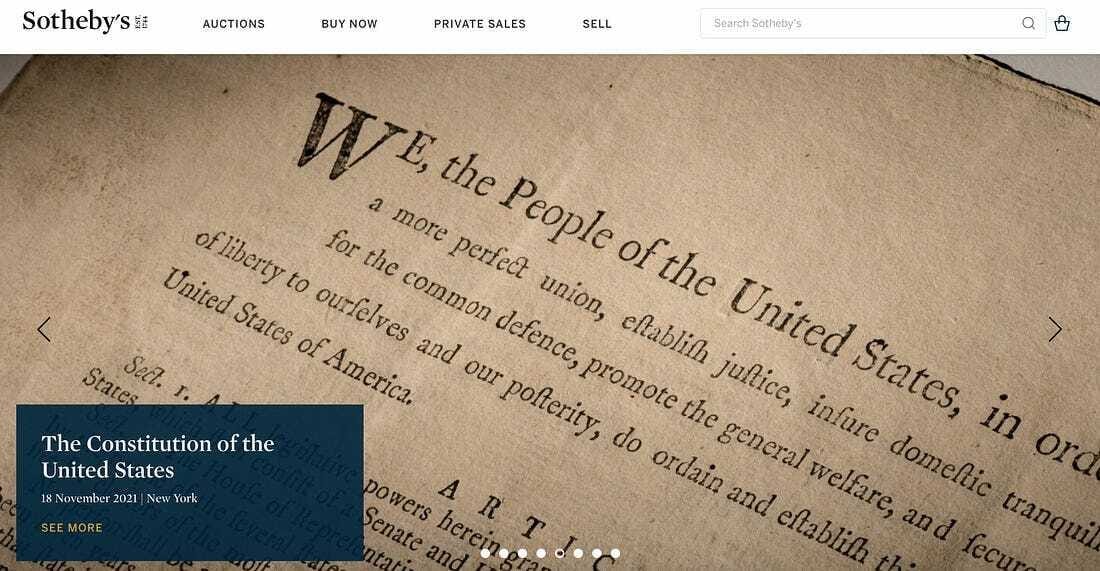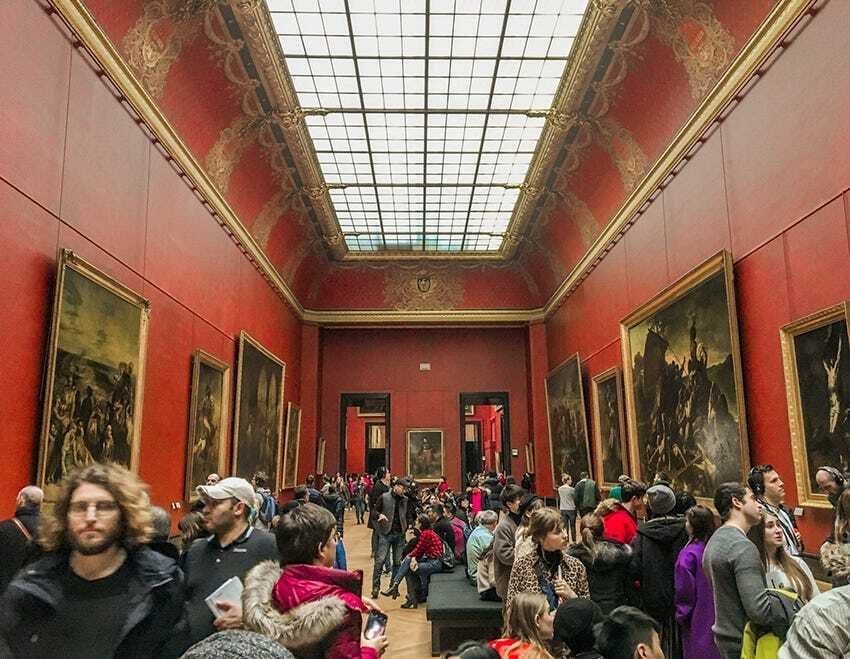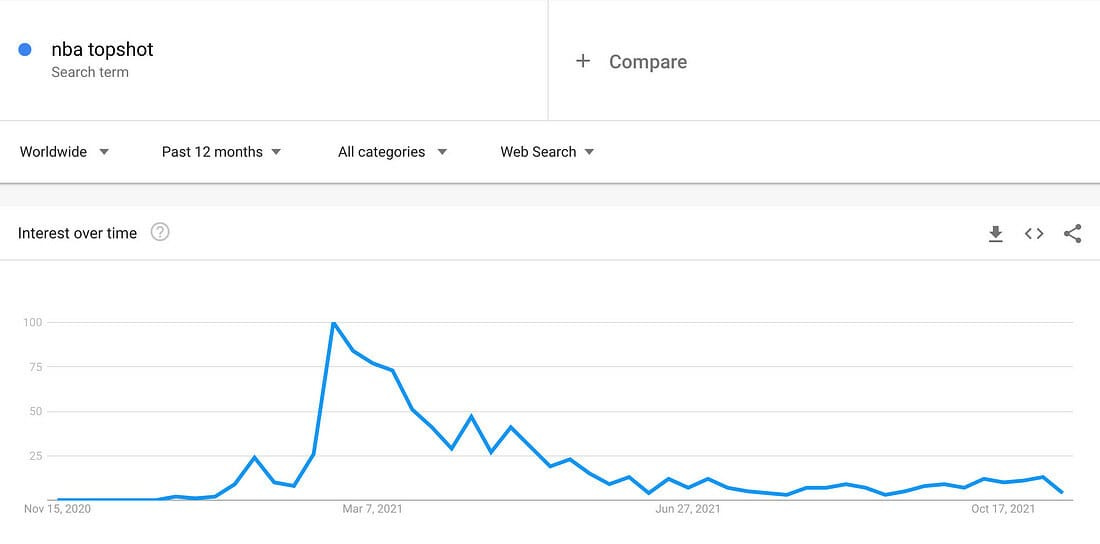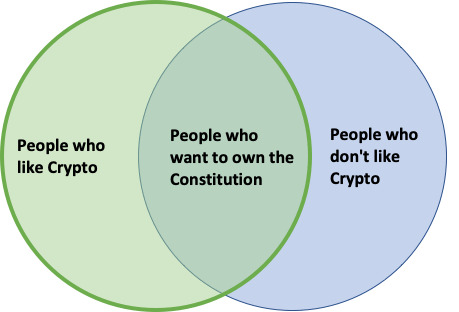We the Peopl3
In five days, the US Constitution will be sold at an auction in New York City. An online community has ambitious plans to secure the document.
Welcome to Young Money! If you’re new here, you can join the tens of thousands of subscribers receiving my essays each week by adding your email below.
We the People. The rally cry of the world’s greatest democracy. For years, America has represented opportunity for billions around the world. Despite its shortcomings, the United States has always given the individual a chance to make something out of his or her life.
More than 200 years ago, the Constitution provided the blueprint for American democracy. Next week, democracy may help a new group take ownership of the US Constitution.
What Happened?
In 1787, the Founding Fathers distributed 500 original copies of the US Constitution to delegates around the country. In 2021, only 11 of those copies still exist. Only one of those 11 copies is in private hands. That document is going on sale at a Sotheby’s auction in New York in five days.
In 1988, Howard Goldman purchased the archive from a Philadelphia collector for $165,000. Today, Sotheby’s anticipates bids up to $20 million on the historic document.
Sotheby’s auctions have typically been dominated by powerful institutions and the ultra-wealthy. This one will have a new bidder.
Austin Cain has created a Decentralized Autonomous Organization (DAO) to raise funding to win the auction.
DAO Jones
If you’re reading this, there’s a 90% chance you have no idea what a DAO (pronounced dow) is. It’s okay, I’m new to this too. I’m about to use a bunch of buzzwords, then break down those buzzwords, then you’ll understand DAOs.
DAOs are decentralized online general partnerships whose structures are determined by smart contracts recorded on the blockchain.
That probably sounds confusing. Let’s break it down.
Blockchain: Blockchain is an online ledger that records and validates information. That’s it. All data recorded on the blockchain is public and final.
Smart contracts: These define the rules of the organization and hold the group’s treasury. Once the contract is live on the blockchain, it cannot be changed except for by vote. This voting process is coded into the smart contract. Meticulous attention to detail is required when building the smart contract, because of its importance to the function of the organization.
General partnerships: Every member of the DAO has ownership of the DAO. Ownership could be structured pro-rata based on capital invested, meritocracy, or any other variable deemed appropriate by the founding team.
Decentralized: There is no CEO, CFO, etc. It’s power to the players on steroids, where the collective members direct the ship.
To rephrase the earlier statement: DAOs are self-governed entities where the rules of organization are recorded on a public, online ledger.
DAOs are one piece of a larger movement known as Web3, or the next iteration of the internet. Web2 is the internet as we know it. Central platforms (Youtube, Facebook, Twitter) control most content, and digital assets aren’t actually owned by individuals.
Web3 is the move towards individual ownership of digital content. DAOs are likely going to play a large role in this shift.
Timeline
Two days ago, Austin sent a few of our friends the following text:
I thought he was joking. Maybe this was a poor attempt at a Nicholas Cage joke. Then he linked the Sotheby’s auction site. He was serious, and the Constitution was actually for sale. He was also pitching the idea to several investors online, and interest was high.
So Austin and company created the Constitution DAO.
Word traveled fast, as everyone wanted a piece of the Constitution. In 36 hours, the Twitter account has 2,600 followers, and the Discord server has 2611 members. The DAO has raised several million in soft capital commitments, and the team is currently building the funding mechanism to establish ownership. By the end of the weekend, the technical aspect of the Constitution DAO should be finalized.
Why This Matters
Two groups control the world’s most famous art, archives, and artifacts: museums and the mega-wealthy. If you’re reading this, you don’t own a Picasso, Van Gogh, the Rosetta Stone, or the Magna Carta. You pay $15 to spend three hours in a museum to see them.
If you’re Jeff Bezos, you can drop $53 million to purchase an Ed Ruscha painting. If you’re not Jeff Bezos, you can stick to touring the Louvre.
Financial institutions have been slow to develop vehicles for retail investors to invest in this area. In a world where you have to be an “accredited investor” to invest in private markets, this shouldn’t be a surprise. DAOs provide an alternative.
There is symbolism in a DAO attempting to purchase the Constitution. The Constitution was written in 1787 as the United States broke away from the tyranny of Great Britain. Our country was founded on liberty, freedom, and democracy. Our system of government was designed to give all citizens a voice.
Ironically, for the longest time, assets such as the Constitution were only available to the elites and institutions.
Now, the people have an opportunity to own We the People.
Skeptic to Believer
Cryptocurrencies, NFTs, and Web3 are the Wild, Wild West.
In a world filled with thousands of anonymous actors, complex jargon, volatile prices, and confusing assets, grifting is king. Decentralization sounds good, but lack of regulation makes it really easy for your money to *disappear*. Those JPEGs aren’t FDIC insured ya know.
The crypto/NFT space has largely consisted of using internet money to buy internet things to impress internet people. The “real-world” applications, for the most part, have been theoretical at best. Stories of what could happen have overshadowed what is happening, and speculators have bid up the prices of various cryptocurrencies and NFTs in response.
Remember NBA TopShot? The first big NFT trend of 2021? Search history dropped off a cliff after March.
What happened when search history died? The market capitalization of this marketplace dropped from $2 billion to $700 million.
Those gifs of Lebron James dunking weren’t exactly great stores of value.
The NFT market is clout machine fueled by FOMO. You can pay thousands of dollars for digital images of lions, apes, and pixelated humans, but if your JPEG drops off of Google trends, you’re ngmi (not gonna make it).
Celebrities are being paid to endorse different crypto movements, because the creators understand the hype game. Investors are rug-pulled after loading the latest shit coin fad. Many of these decentralized “projects” are just liquidity pumps for creators to dump on other investors.
On top of that, the average person doesn’t know/care about any of this. 99% of the world isn’t going to pay for a JPEG, or trade crypto, or spend any time learning about any of the stuff I just mentioned. They don’t even know this online ecosystem exists.
So yeah, you could say that I’m a huge crypto critic. I see some valid use cases (i.e. currency exchange & transferring money between parties), but that’s about it. Until now.
Why?
Because we’re not talking about JPEGs and dog coins. We’re talking about The Constitution of the United States of America.
Most crypto projects have boiled down to using internet money to buy internet stuff to impress internet people.
What happens when internet money is used to purchase America’s most treasured document?
The NFT market is fueled by FOMO.
The Constitution is fueled by patriotism.
99% of the world doesn’t care about what’s going on in the crypto-sphere.
All 329 million Americans would love to say they own part of the US Constitution.
That’s the beauty of this project. This isn’t some abstract, digital snake oil pitch. This is thousands of people coming together to buy the cornerstone of American democracy.
This is an idea that everybody can understand. Everybody can support. Here is a Venn diagram of people interested in the Constitution.
Who wouldn’t want to own a piece of the US Constitution?
Paradigm Shift
Say the Constitution DAO is successful. This won’t be a one hit wonder. It will validate a movement to decentralize, well, pretty much everything. I don’t know what this would mean for both fundraising and organization structures.
Could a DAO purchase and operate a football club?
Could DAOs disrupt the venture capital industry?
Could DAOs replace traditional boards of directors?
I don’t know. I do know that if the Constitution DAO purchases the US Constitution, the world will be put on notice. For the first time in history, a rare artifact won’t be on display in some billionaire’s mansion or a Smithsonian exhibit. It will be owned by We the People.
Even if the DAO doesn’t win the auction, raising the funding to place a bid validates the possibility that online communities can make powerful impacts in the offline world.
In six days, We the Peopl3 will attempt to purchase “We the People”. Stay tuned.
-Jack
I appreciate reader feedback, so if you enjoyed today’s piece, let me know with a like or comment at the bottom of this page!
Young Money is now an ad-free, reader-supported publication. This structure has created a better experience for both the reader and the writer, and it allows me to focus on producing good work instead of managing ad placements. In addition to helping support my newsletter, paid subscribers get access to additional content, including Q&As, book reviews, and more. If you’re a long-time reader who would like to further support Young Money, you can do so by clicking below. Thanks!












